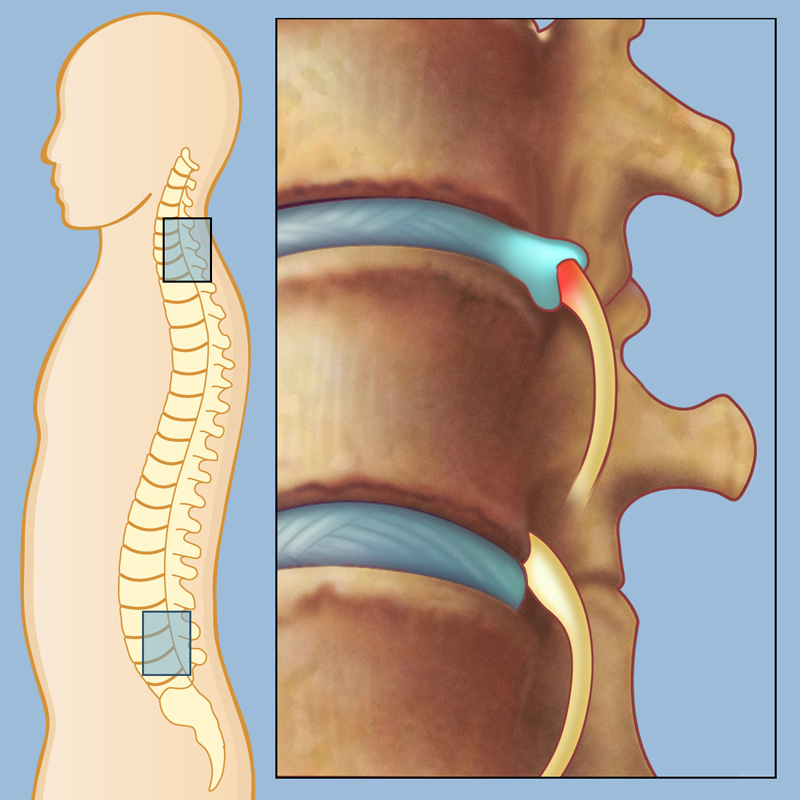Radiculopathy

Radiculopathy
Table of Contents
Contact Us
Related Videos :
Frequently Asked Questions :
1. What are the warning signs of radiculopathy?
Persistent pain, numbness, or weakness in the arms or legs, along with difficulty in performing daily activities, may indicate radiculopathy. Consult a specialist if symptoms persist.
2. Can radiculopathy be treated without surgery?
Yes, most cases are managed with non-surgical treatments like medications, physical therapy, and injections. Surgery is recommended only for severe or unresponsive cases.
3. How long does recovery take after surgery?
Recovery varies depending on the procedure and individual factors. Most patients resume normal activities within 4-6 weeks, but full recovery may take a few months.

About Radiculopathy
Radiculopathy is a condition caused by the compression or irritation of spinal nerve roots, leading to pain, numbness, or weakness radiating along the nerve’s path. The term is often associated with conditions affecting the cervical (neck), thoracic (mid-back), or lumbar (lower back) spine. Patients with radiculopathy may experience debilitating symptoms that interfere with daily activities, making timely diagnosis and treatment crucial.
Causes of Radiculopathy
Several factors can contribute to the development of radiculopathy, including:
- Herniated Discs: A slipped or ruptured disc can press on nerve roots, causing pain and other symptoms.
- Spinal Stenosis: Narrowing of the spinal canal can compress nerves.
- Bone Spurs: Abnormal bony growths may impinge on nerves.
- Degenerative Disc Disease: Wear-and-tear changes in the spine over time.
- Injuries: Traumatic events can lead to nerve root compression.
- Infections or Tumors: Rarely, these conditions may affect the spinal nerve roots.
Risk factors include aging, poor posture, obesity, and physically demanding jobs or activities.
Types of Radiculopathy
Radiculopathy is classified based on the region of the spine affected:
- Cervical Radiculopathy: Occurs in the neck, with pain radiating to the shoulders, arms, or hands.
- Thoracic Radiculopathy: A less common type, causing pain in the chest or abdomen.
- Lumbar Radiculopathy (Sciatica): Affects the lower back, with pain extending to the hips, legs, or feet.
Symptoms of Radiculopathy
Common symptoms include:
- Sharp or burning pain in the affected area.
- Tingling or “pins and needles” sensations.
- Muscle weakness in the arms or legs.
- Loss of reflexes.
- Difficulty in performing everyday activities due to discomfort or limited mobility.
If you experience persistent or worsening symptoms, it is crucial to seek medical attention.
Diagnosis of Radiculopathy
Dr. Sandeep Vaishya employs advanced diagnostic techniques to accurately identify the underlying cause of radiculopathy. These include:
- Physical Examination: Assessing reflexes, muscle strength, and sensation.
- Imaging Tests: MRI and CT scans provide detailed images of the spine and nerve roots.
- Electromyography (EMG): Measures electrical activity in muscles to determine nerve function.
- X-rays: Help identify structural abnormalities like bone spurs or fractures.
Accurate diagnosis forms the cornerstone of effective treatment planning.
Treatment Options for Radiculopathy
Dr. Vaishya offers a range of treatment options tailored to individual needs, including:
Non-Surgical Treatments
- Medications: Pain relievers, anti-inflammatory drugs, and muscle relaxants.
- Physical Therapy: Strengthening and flexibility exercises to relieve pressure on nerves.
- Epidural Steroid Injections: Reduce inflammation and provide temporary pain relief.
Cost and Stay in India
India has become a preferred destination for spinal treatments, offering world-class medical care at affordable prices. Here’s what to expect:
- Cost: The cost of radiculopathy treatment in India varies based on the chosen procedure but is significantly lower compared to Western countries. Non-surgical treatments may cost between $500 to $1,500, while surgical options can range from $4,000 to $7,000.
- Stay Duration: Patients typically stay for 1-2 weeks, including pre-operative assessments and recovery.
Dr. Vaishya’s team ensures a smooth experience, assisting with medical visas, accommodation, and travel arrangements.